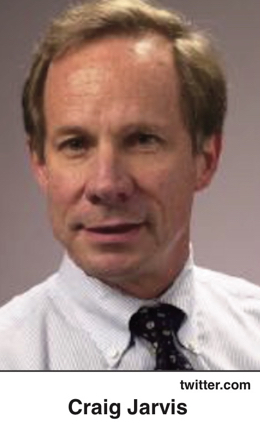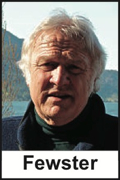Rascals case in brief
In the beginning, in 1989, more than 90 children at the Little Rascals Day Care Center in Edenton, North Carolina, accused a total of 20 adults with 429 instances of sexual abuse over a three-year period. It may have all begun with one parent’s complaint about punishment given her child.
Among the alleged perpetrators: the sheriff and mayor. But prosecutors would charge only Robin Byrum, Darlene Harris, Elizabeth “Betsy” Kelly, Robert “Bob” Kelly, Willard Scott Privott, Shelley Stone and Dawn Wilson – the Edenton 7.
Along with sodomy and beatings, allegations included a baby killed with a handgun, a child being hung upside down from a tree and being set on fire and countless other fantastic incidents involving spaceships, hot air balloons, pirate ships and trained sharks.
By the time prosecutors dropped the last charges in 1997, Little Rascals had become North Carolina’s longest and most costly criminal trial. Prosecutors kept defendants jailed in hopes at least one would turn against their supposed co-conspirators. Remarkably, none did. Another shameful record: Five defendants had to wait longer to face their accusers in court than anyone else in North Carolina history.
Between 1991 and 1997, Ofra Bikel produced three extraordinary episodes on the Little Rascals case for the PBS series “Frontline.” Although “Innocence Lost” did not deter prosecutors, it exposed their tactics and fostered nationwide skepticism and dismay.
With each passing year, the absurdity of the Little Rascals charges has become more obvious. But no admission of error has ever come from prosecutors, police, interviewers or parents. This site is devoted to the issues raised by this case.
On Facebook
Click for earlier Facebook posts archived on this site
Click to go to
Today’s random selection from the Little Rascals Day Care archives….
Click for earlier Facebook posts archived on this site
Click to go to
Today’s random selection from the Little Rascals Day Care archives….
When will wheels of justice turn for Junior?
Sept. 23, 2013
There’s a bit of an update out of Raleigh on Junior Chandler’s prospects for clemency.
Billy Chandler, Junior’s brother, received this email last week from Pat Hansen in the Governor’s Clemency Office:
“Attorney Mark Montgomery filed a commutation request with this office at the end of Governor Perdue’s term in office. However, due to the volume of requests received, the request was not ‘officially reopened.’ Currently, we are working on all of the cases held over from the Perdue Administration. Unfortunately, I cannot tell you when your brother’s case will be reviewed.”
In North Carolina the governor’s clemency power covers both pardons and commutations. Here’s the stated distinction:
“Commutation – whereby an individual presently incarcerated and serving an active sentence has their sentence commuted or reduced by any number of years, months, or days, or to make parole eligible, or to time served which would release the individual immediately.
“Pardon – may be granted to those individuals who have maintained a good reputation in their community, following the completion of their sentence for a criminal offense. Ordinarily, an applicant must wait to apply until at least five years have elapsed since the applicant was released from State supervision (including probation or parole). A Pardon is merely an official statement attached to the criminal record that states that the State of North Carolina has pardoned the crime. A Pardon does not expunge or erase a criminal record….”
As much as the facts of Junior’s case call for a pardon, a commutation seems not quite as steep a challenge. However great “the volume of requests received,” Junior Chandler’s surely deserves to be at the top of the stack.
Tortured by timidity in Texas

austinchronicle.com
Dan, left, and Fran Keller
March 13, 2016
“Fran and Dan Keller have been released from a Texas prison after 21 years, yet still have little freedom of movement or circumstance, or even quality of life. Their 1992 conviction on multiple counts of ‘sexual assault of a minor’ – in the now notorious Fran’s Day Care case – has effectively been overturned by a 2015 Court of Criminal Appeals ruling ‘granting relief’ to the Kellers on a single question of retracted medical testimony. But the ruling was not accompanied by actual exoneration from the allegedly heinous crimes.
“Only a single appeals court judge – Cheryl Johnson – was willing to admit no crime had in fact occurred. ‘This was a witch hunt from the beginning,’ wrote Johnson, in her opinion concurring with the opaque ruling of the full court. Johnson would have granted relief on all the Kellers’ claims, and would have acknowledged that the entire prosecution had been an egregious folly.
“The limited ruling, while welcome in itself, left the Kellers in a legal limbo – permanently accused but not cleared…. required to somehow further demonstrate their innocence – of crimes that never happened….”
– From “Learning From Our Mistakes” by Michael King in the Austin Chronicle (March 11) (cached)
So who thwarts the hapless Kellers? Yes, yet another prosecutor who sets the bar for exoneration stratospherically high. Although District Attorney Rosemary Lehmberg (here’s why her name rings a bell) supported their release, she now finds herself unable to “find a path to innocence” without the deal-sealing exculpation of DNA evidence. Those darn imaginary criminals sure do clean up after themselves….
![]()
Lacrosse case wasn’t state’s only imaginary crime
 Oct. 14, 2015
Oct. 14, 2015
“(Attorney General Roy Cooper) took over a tangled and controversial investigation of alleged gang rape by Duke University athletes, eventually in 2007 making the extraordinary determination that the crime never happened….”
– From “Cooper formally declares campaign to unseat McCrory” by Craig Jarvis in the News & Observer of Raleigh (Oct. 12)
So far, Attorney General Cooper’s willingness to address crimes that never happened hasn’t extended to the Little Rascals Day Care case.
How one journal editor went very, very wrong
 Dec. 7, 2012
Dec. 7, 2012
Following up on Wednesday’s post:
Here’s how editor Gerry Fewster began his introduction to “In the Shadow of Satan: The Ritual Abuse of Children,” the still-unretracted 1990 special issue of the Journal of Child and Youth Care:
“Putting this issue together has been my most difficult Journal assignment…. It began as a fascinating prospect with little or no supportive documentation. As I discussed the concept with colleagues and friends the most unlikely doors began to open. Fragments of information – odd papers, crude and unfinished manuscripts, unsolicited telephone calls, personal revelations, and even photographs – began to appear….”
Dr. Fewster’s professional skepticism seems to have quickly yielded to those phantasmagoric “fragments of information.” He details an investigative process that….well, evaluate for yourself:
“Many times during the course of reading the material, I decided to quit. I found that I had neither the head nor the stomach for the task…. After spending many hours reading from the protective armor of the editorial role, I would feel physically ill. At first I attributed all of this to my reluctance to examine the depths of my own ‘shadow’ and urged myself on. Then, as my curiosity rekindled, I would shrink back in horror from the spectres of my own hidden motives and intentions….”
Dr. Fewster goes on to introduce his fellow contributors to “In the Shadow of Satan.”
Pamela S. Hudson, for instance, “provides an authoritative wide-angle perspective. Based upon clinical experience and the results of her own survey, the author identifies and discusses the most frequently reported symptoms and allegations surrounding ritual child abuse. Beyond the grisly nature of the content, this seasoned practitioner offers a wealth of insight for those who wish to know about satanic practices and better understand the terrifying experiences of children caught up in this vicious network.”
Hudson’s article isn’t available online, but fortunately is preserved in her subsequent book “Ritual Child Abuse: Discovery, Diagnosis and Treatment.” Here’s an example of the “wealth of insight” provided by “this seasoned practitioner”:
“The exceptional symptom in ritual abuse cases is the sudden eating disorder
demonstrated by these children. Besides being revolted by meat, catsup, spaghetti and tomatoes (which resemble organs), (cf., Catherine Gould) I had a case of a 20-month-old girl suddenly start to throw away her baby bottle. When she was older she said the perpetrator urinated into her baby bottle during his visits with her. Later, she spoke of witnessing the death of a baby girl….”
All this impressionistic pseudoscience could be written off as overreaching silliness, had it not contributed to the moral panic that swept up innocent victims such as the Edenton Seven. Isn’t it time for the editors at those professional journals that enabled the reign of error to at last set the record straight?











0 CommentsComment on Facebook